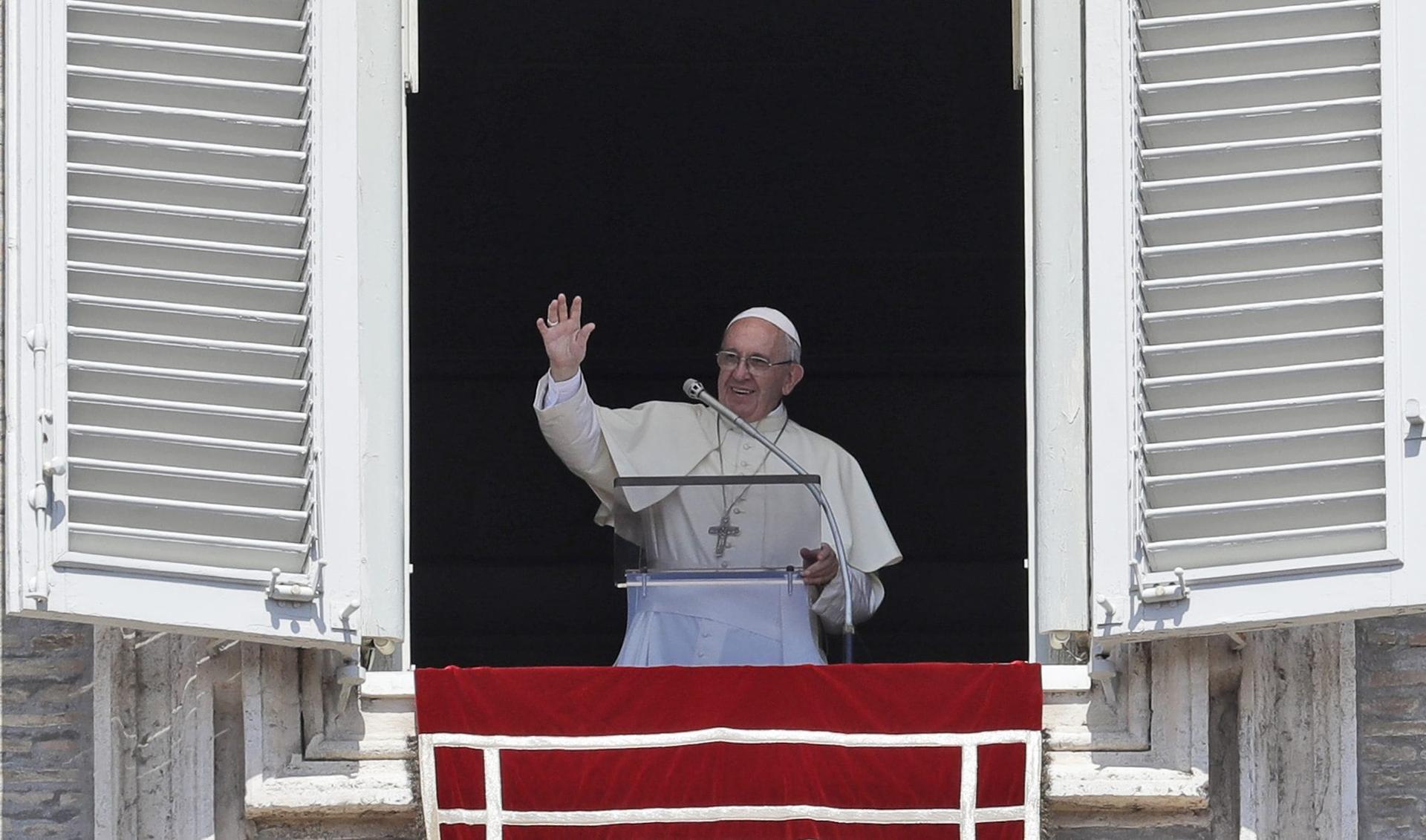ROME — After an explosion in southern Turkey lit up a wedding ceremony, killing 50 people and wounding nearly 100 more, Pope Francis offered his prayers for the victims and asked for peace to be given to all.
“Dear brothers and sisters, I have heard of the sad news of the bloody attack yesterday which struck the beloved Turkey,” the pope said Aug. 21, after leading pilgrims in praying the traditional Angelus prayer.
He offered his prayers for the victims, both “living and dead,” and led those gathered in a moment of silence and a Hail Mary, asking for “the gift of peace for all.”
According to news agency Aljazeera, at least 50 people have been killed and 94 wounded after what is believed to be a suicide bomber blew themselves up at a wedding ceremony in Turkey’s southeastern province of Gaziantep, near the Syrian border, Aug. 20.
The blast, which took place at roughly 11 p.m. local time, happened in the Akdere neighborhood of Sahin Bey district as those celebrating were dancing in the street, which is common for wedding ceremonies in the south of Turkey.
Gaziantep is a major city roughly 37 miles from the Syrian border, and has become a hub for Syrians fleeing the civil war that’s tearing their country apart.
Although no one has yet claimed responsibility for the attack, Aljazeera reports that Ali Yerlikaya, the governor of Gaziantep, referred to it as a “terror attack,” and Turkey’s president Recep Tayyip Erdogan said “Daesh is the likely perpetrator,” using the Arabic name for Islamic State.
In his address before the Angelus, Pope Francis reflected on the day’s Gospel passage from Luke, in which Jesus, as he was teaching in Jerusalem, was asked if only a few people would be saved.
Pope Francis noted that in his response Jesus didn’t give a direct answer to the question, but instead referred to a door, telling the crowd to “strive to enter through the narrow gate, for many, I tell you, will attempt to enter but will not be strong enough.”
By giving the image of the door, Jesus is telling his listeners “it’s not a question of numbers.” Knowing how many will be saved is not important he said, but knowing the path that leads to salvation is.
This path requires that we pass through a door, Francis said, explaining that this door is “Jesus himself… he says it; he leads us into communion with the Father, where we find love, understanding and protection.”
Reflecting on why the door is “narrow,” the pope said it’s not because it’s “oppressive,” but rather because it challenges us to “restrict and contain our pride and our fear, to open ourselves with a heart that’s humble and faithful to him, recognizing that we are sinners in need of his forgiveness.”
While the door of salvation is narrow, the door of God’s mercy is “always wide open” for everyone to enter, he said, adding that God doesn’t have preferences, but welcomes all “without distinction.”
Jesus, he said, “awaits each one of us, whatever sin we have committed, to embrace us, to offer us his forgiveness. Only he can give full meaning to our existence, giving us true joy.”
By entering through the door that is Jesus, we are able to let go of “worldly attitudes, of bad habits, of selfishness and closure,” and experience an authentic change through the Holy Spirit, he said.
In off-the-cuff comments, Pope Francis urged pilgrims to pause for a moment to reflect on what impedes them from opening the door to Jesus, as well as the door of mercy he offers to us.
“The Lord offers us many occasions to save ourselves and enter through the door of salvation,” the pope said, adding that “this door is the opportunity that must not be wasted.”
Francis stressed that giving “academic speeches” on salvation isn’t necessary to enter through the gate, but instead we must “seize the opportunities of salvation” that are given to us.
He turned to the Gospel passage, in which Jesus recounts how the master of the house “has arisen and locked the door,” telling those who knock outside asking to be let in: “I do not know where you are from.”
If God is merciful and loves us, “why does he close the door?” Francis asked, explaining that he does it “because our life is not a videogame or a soap opera; our life is serious and the goal to achieve is important: eternal salvation.”
Pope Francis closed his address by asking Mary to intercede in helping all to “seize the opportunities” the Lord offers us to enter by the wide road. This road, he said, is one “of salvation capable of welcoming all those who allow themselves to be involved with love.”
“It’s love that saves, love which already on earth is a source of beatitude for those, in meekness, patience and justice, forget about themselves and give themselves to others, especially the most vulnerable.”











